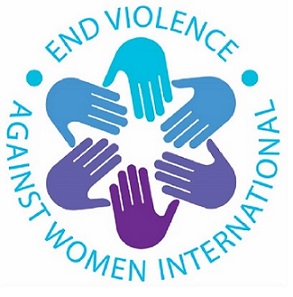Resources Library: Multidisciplinary
Start a Search:
New Reports from the Virginia Violence Death Reporting System
The Office of the Chief Medical Examiner in the Virginia Department of Health has issued two new reports from the Virginia Violent Death Reporting System: Homicide Across the Life Course and Homelessness and Violent Death.
Homicide Across the Life Course examines homicides from two viewpoints. First, a longitudinal perspective describes changing homicide rates from 2003-2011. Second, a life course perspective examines how homicide looks for different age groups and how homicide risk changes as we age. This report identifies populations who are more at risk than others, and documents regions of Virginia and circumstances surrounding homicide that can assist in developing targeted responses and interventions to reduce homicide and support healthier communities in the Commonwealth.
Homelessness and Violent Death examines violent death, particularly homicides and suicides, among people who were homeless at the time of death. Violence prevention is a challenge for any population, but it may be especially so for homeless persons whose daily life and poor access to fundamental resources such as housing, safety, food, and health care creates the opportunity and conditions for violence. Their vulnerable status is exacerbated by substance abuse problems and mental health conditions, which may not be addressed in any meaningful way because they are homeless.
New Resources on Adult Fatality Review in Virginia
As of July 1, 2015, Virginia law supports the formation of local and regional Adult Fatality Review Teams (AFRTs) to identify and review deaths involving abuse, neglect and exploitation of incapacitated and older adults in the Commonwealth. Resources to assist communities in forming AFRTs can be found here.
Not Invisible: Rape on the Reservation and What You Can Do About It
Government statistics paint a shocking picture – Native American and Alaska Native women are more than 2.5 times more likely to be raped or sexually assaulted than other women in America. Indigenous women interviewed by Amnesty International said they didn’t know anyone in their community who had not experienced sexual violence. Why is this? What can be done to prevent these atrocities and how can service providers and communities come together to support survivors in culturally appropriate and meaningful ways?
We were honored to have Mending the Sacred Hoop Executive Director Tina Olson explore these questions and more for this important webinar. A lot of important and powerful information was shared, particularly relative to native women (it was focused specifically on women). Click here to view the recording and view additional resources below.
Now Available: 2013 Family and Intimate Partner Homicide Report
The Office of the Chief Medical Examiner announces the release of the 2013 Annual Report on Family and Intimate Partner Homicide: A descriptive analysis of the characteristics and circumstances surrounding family and intimate partner homicide in Virginia.
This report contains an overview of 2013 data from the Family and Intimate Partner (FIP) Homicide Surveillance Project. Highlighted findings include:
• 36% of all homicides in 2013 in Virginia were attributed to Family and Intimate Partner Violence (FIPV). While the overall number of homicides has decreased since 2009, the proportion of deaths attributed to FIPV remains stable at one in three or higher.
• Firearms were used in 57% of FIP Homicides, a 21% increase from 2012.
• Despite the majority of FIP Homicide victims being white and female, the highest death rate was among blacks (2.9), with black males dying at a higher rate than any other group (3.1).
• The highest number of FIP Homicides occurred in the Eastern Health Planning Region (39); Richmond City had the highest number of deaths (10) for any one locality.
We invite your review of the full report, which is available at: http://www.vdh.virginia.gov/medExam/documents/pdf/2013%20FIPS%20Report.pdf.
Officers and Advocates: Oil and Water?

From End Violence Against Women International
One of our most popular articles addresses the collaboration between law enforcement and victim advocates, with the title Oil and Water? This article was first written years ago, but it remains just as timely today. We are therefore providing the information in a series of Training Bulletins.
In this first installment, we begin with a historical perspective and explore the role of victim advocates within the context of the criminal justice system. In the second bulletin, we describe why some professionals are reluctant to integrate victim advocacy in their work and identify strategies for overcoming that reluctance. Then in the final installment, we walk through an example of how advocates might address one particular challenge: When the law enforcement investigator feels like the facts "don't add up."

